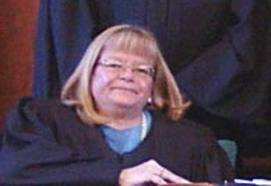Becoming His Wife Veronica Bates Pdf
• Patricia Price ( m. 1960; div. 1961) • Shelley R. Bonus ( m. 1967; div. 1969) • ( m. 1977; div. 1978) • Jennifer Lee ( m. 1981; div. 1982) • Flynn Belaine ( m. 1986; div. 1987) • Flynn Belaine ( m. 1990; div. 1991) • Jennifer Lee ( m. 2001) Children 7 Website Richard Franklin Lennox Thomas Pryor (December 1, 1940 – December 10, 2005) was an American stand-up comedian, actor, and social critic. Pryor was known for uncompromising examinations of racism and topical contemporary issues, which employed vulgarities and profanity, as well as. He reached a broad audience with his trenchant observations and storytelling style [ ], and is widely regarded as one of the greatest and most influential stand-up comedians of all time.
VARIATION OF MY WIFE'S. ORDER per her murder being given. JANET NAPOLITANO of the DHS, who was then. Forced to resign EXACTLY 2 YEARS AFTER SHE.

Pryor's body of work includes the concert movies and recordings: (1971), (1974), (1975), (1976), (1979), (1982), and (1983). As an actor, he starred mainly in comedies such as (1976), but occasionally in dramas, such as 's (1978), or action films, such as (1983). He collaborated on many projects with actor. Another frequent collaborator was actor/comedian/writer. Pryor won an (1973) and five (1974, 1975, 1976, 1981, and 1982). In 1974, he also won two American Academy of Humor awards and the. The first-ever was presented to him in 1998.
He was listed at number one on 's list of all-time greatest stand-up comedians. In 2017, ranked him first on its list of the 50 best stand-up comics of all time. Publicity photo of Pryor for one of his appearances, 1968–1969 In 1963, Pryor moved to New York City and began performing regularly in clubs alongside performers such as and. On one of his first nights, he opened for singer and pianist at New York's. Simone recalls Pryor's bout of: He shook like he had, he was so nervous.
I couldn't bear to watch him shiver, so I put my arms around him there in the dark and rocked him like a baby until he calmed down. The next night was the same, and the next, and I rocked him each time. Inspired by Bill Cosby, Pryor began as a comic, with material far less controversial than what was to come. Soon, he began appearing regularly on television, such as,, and.
His popularity led to success as a comic in. The first five tracks on the 2005 compilation CD, recorded in 1966 and 1967, capture Pryor in this period. In September 1967, Pryor had what he described in his autobiography (1995) as an '. He walked onto the stage at the in Las Vegas (with in the audience), looked at the sold-out crowd, exclaimed over the microphone, 'What the fuck am I doing here!?' , and walked off the stage. Afterward, Pryor began working profanity into his act, including the word '.
Digifish Aqua Real 2 V1.04 there. His first comedy recording, the eponymous 1968 debut release on the label, captures this particular period, tracking the evolution of Pryor's routine. Around this time, his parents died—his mother in 1967 and his father in 1968. In 1969, Pryor moved to, where he immersed himself in the and rubbed elbows with the likes of and. [ ] 1970s [ ] In the 1970s, Pryor wrote for such television shows as,, and a 1973 special, for which he shared an.
During this period, Pryor tried to break into mainstream television. He also appeared in several popular films, including (1972), (1973), (1974), (1976), (1976), (1976), (1977), (1977), (1978), (1979).
Pryor signed with the comedy-oriented independent record label in 1970, and in 1971 recorded his second album, Craps (After Hours). Two years later, the relatively unknown comedian appeared in the documentary (1972), wherein he riffed on the tragic-comic absurdities of in and the nation.
Not long afterward, Pryor sought a deal with a larger label, and he signed with in 1973. When his third, breakthrough album, (1974), was released, Laff, which claimed ownership of Pryor's recording rights, almost succeeded in getting an injunction to prevent the album from being sold.